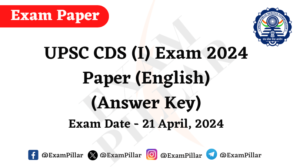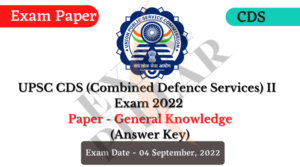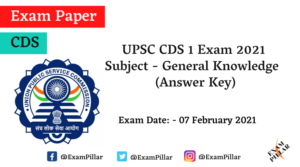61. People look for plausible remedies to the problems which they do not know.
(a) Acceptable
(b) Unthinkable
(c) Solvable
(d) Believable
Show Answer/Hide
62. The departing speech of the Chairperson ended with a plaintive note.
(a) Melancholic
(b) Gleeful
(d) Adventurous
(c) Doleful
Show Answer/Hide
63. The members have taken a unanimous decision to discord some of the rulings of the Managing Committee on problems relating to maintenance.
(a) Accord
(b) Dissension
(d) Friction
(c) Dispute
Show Answer/Hide
64. The insolent nature of the speaker had provoked the members of the house and this led to pandemonium.
(a) Respectful
(b) Autocratic
(c) Impudent
(d) Thought provoking
Show Answer/Hide
65. Incessant rains have resulted in failure of crops during this season.
(a) Sporadic
(b) Persistent
(c) Continual
(d) Ceaseless
Show Answer/Hide
SYNONYMOUS
Directions : Each item in this section consists of a sentence with an underlined word followed by for words/groups of words. Select the option that is nearest in meaning to the underlined word and mark your response on your Answer Sheet accordingly.
66. The properties of the family have been impounded by the order of the court.
(a) Confiscated
(b) Permitted
(c) Sold
(d) Put on hold
Show Answer/Hide
67. The officer in charge of the operations has been impugned for the excesses.
(a) Expelled
(b) Rewarded
(c) Challenged
(d) Given allowance
Show Answer/Hide
68. Cognitivist and linguists believe that every child is born with innate qualities.
(a) Biological
(b) Intrinsic
(c) Extrinsic
(d) Unnatural
Show Answer/Hide
69. It was obligatory for the board to implement the rule.
(a) Compulsory
(b) Unnecessary
(c) By chance
(d) Problematic
Show Answer/Hide
70. They describe the act as a blatant betrayal of faith.
(a) Loyal
(b) Faithfulness
(c) Treachery
(d) Honesty
Show Answer/Hide
71. However, if it must decide, then it should do so on the narrowest ground possible.
(a) Widest
(b) Slightly
(c) Smallest
(d) Thick
Show Answer/Hide
72. This is akin to a contractual relationship that places obligations on the entities entrusted with data.
(a) Removed
(b) Narrow
(c) Similar
(d) Unparallel
Show Answer/Hide
73. Many communication problems can be attributed directly to misunderstandings and inaccuracies.
(a) Disapproved
(b) Unofficial
(c) Ascribed
(d) Tribute
Show Answer/Hide
74. The exemptions granted to State institutions for acquiring informed consent from processing personal data in many cases appear to be too blanket
(a) Obtain
(b) Lose
(c) Givings
(d) Thinking
Show Answer/Hide
75. The manner in which this exercise has been undertaken leaves much to be desired.
(a) Disliked
(b) Unlikely
(c) Wish for
(d) Asked for
Show Answer/Hide
ORDERING OF SENTENCES
Directions : In this section, each item consists of six sentences of a passage. The first and sixth sentences are given in the beginning as S1 and S6. The middle four sentences in each item have been jumbled up and labelled as P, Q, R and S. You are required to find the proper sequence of the four sentences and mark your response accordingly on the Answer Sheet.
76.
S1 : The master always says, “Refuse to be miserable”.
S6 : This is the art of right contact in life.
P : Before you fall into self-pity and blame games, remember that responsibility comes to only those who feel responsible.
Q : Challenges are faced by the strong and courageous, and if life brings you such opportunities, then turn failures into success.
R : Life can be painful, but it need not be sorrowful.
S : If you want to be happy, find occasions to be cheerful.
The correct sequence should be
(b) SQPR
(a) RSPQ
(c) QRSP
(d) RQSPA
Show Answer/Hide
77.
S1 : Gandhiji reached Newcastle and took charge of the agitation.
S6 : The treatment that was meted out to these brave men and women in jail included starvation and whipping, and being forced to work in the mines by mounted military police.
P : During the course of the march, Gandhiji was arrested twice, released, arrested a third time and sent to jail.
Q : The employers retaliated by cutting off water and electricity to the workers’ quarters, thus forcing them to leave their homes.
R : Gandhiji decided to march this army of over two thousand men, women and children over, the border and thus see them lodged in Transvaal jails.
S : The morale of the workers, however, was very high and they continued to march till they were prosecuted and sent to jail.
The correct sequence should be
(a) QRPS
(b) SRQP
(c) QPSR
(d) ROSP
Show Answer/Hide
78.
S1 : One of the most important forces in the modern world, socialism was a direct result of the Industrial Revolution. man
S6 : This is how socialism as a theory and practice came into being.
P : Socialism was a direct challenge to capitalism and sought to put an end to such an exploitative economic structure.
Q : The gulf between the ‘haves’ and the ‘have nots’ continued to increase and out of this gap between the rich and poor sprang disputes.
R : It generated new wealth but as this new wealth only went to a minority, it could not solve the question of distribution.
S : The Industrial Revolution solved the question of production.
The correct sequence should be
(a) PQRS
(c) SRPQ
(b) SRQP
(d) RQSP
Show Answer/Hide
79.
S1 : Institutions define and play a regulatory role with regard to human behaviour.
S6 : It shows how important it is for a nation to build institutions for nurturing democracy.
P : Once established, institutions set a dynamic relationship with the members constituting them and they mutually affect each other.
Q : They shape preferences, power and privilege.
R : At the same time, institutions themselves can be transformed by the politics they produce and such transformation can affect social norms and behaviours.
S : They also provide a sense of order and predictability.
The correct sequence should be
(a) RPQS
(c) PSRQ
(b) QRSP
(d) QSRP
Show Answer/Hide
80.
S1 : Idioms are a colourful and fascinating aspect of language.
S6 : Idioms may also suggest a particular attitude of the person using them, for example, disapproval, humour, exasperation or admiration, so you must use them carefully.
P : Your language skills will increase rapidly if you can understand idioms and use them confidently and correctly.
Q : They are commonly used in all types of language, informal and formal. spoken and written.
R : In addition, idioms often have a stronger meaning than non-idiomatic phrases.
S : One of the main problems students have with idioms is that it is often impossible to guess the meaning of an idiom from the words it contains.
The correct sequence should be
(a) ROPS
(b) RSPQ
(c) SRQP
(d) QPSR
Show Answer/Hide










